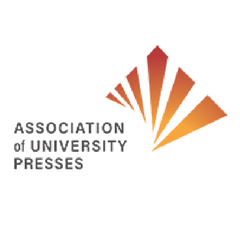August 29, 2018
By Melanie Schlosser
For our 2018 conferences, the Library Publishing Coalition and the Association of University Presses collaborated on a Cross-Pollination Registration Waiver Program. The program sent two AUPresses members to the Library Publishing Forum and two LPC members to the AUPresses Annual Meeting. Each of the recipients was asked to write a reflection on their experience and on opportunities for libraries and presses to work together towards our shared goals. This post is by Sarah Hare, Indiana University. Read the whole series.
*********
“In my experience, press partners often bring an important understanding of workload and fiscal responsibility to these projects while librarians bring a passion for open access and experimentation.”
*********
Why cross-pollinate?
In 2016, Charles Watkinson wrote “Why Marriage Matters: A North American Perspective on Press/Library Partnerships,” which presented a compelling argument for why presses and libraries, as “natural allies in the quest to create a more equitable scholarly publishing system,” should pursue “long-term, deeply embedded partnerships” (p. 342). The article also proposed a taxonomy for understanding library/press relationships and cited noteworthy models for collaboration beyond the “press reports to library” arrangement.
I believe that Watkinson’s recommendations for embracing library/press partnerships in order to better serve the institution both entities are embedded within have only become more relevant. Thinking strategically and realistically about shared library/press work has become imperative at my own institution, Indiana University Bloomington.
In 2012, IU Provost Lauren Robel created the Office of Scholarly Publishing (OSP). The OSP is a partnership between Indiana University Press and IU Libraries’ Scholarly Communication Department. The OSP aims to harness disparate publishing resources and strategically pool expertise in order to transform scholarly publishing at IU. This often happens by:
- Serving IU faculty and students through journal publishing, open access book publishing, and course material publishing
- Moving conversations on publishing innovations forward at IU, including discussion on experimental peer review, course material affordability, hybrid OA models, open-source infrastructure, and new modes of scholarship (for example, 3-D object and multimedia integration)
- Educating the next generation of scholars, both through supporting the creation of student publishing projects and creating programming and hands-on experiences for students interested in publishing, open access, and scholarly career paths
This work requires a shared understanding and committed collaboration from library/press partners. Thus, in addition to learning more about what presses are doing operationally, I applied to the AUPresses/LPC cross-pollination registration waiver program to answer larger questions I had about press values and the university press community’s interests. I also wanted to learn about how others approach library/press collaboration, work toward truly seeing each other, understand the values and ethics of the other partner, and maintain a fruitful relationship through the constant change and innovation inherent in scholarly publishing work today. (more…)


 In addition to Redalyc, Dr. Becerril-García co-founded the Mexican Network of Institutional Repositories (REMERI), and founded AmeliCA, a community-driven initiative for Open Knowledge in Latin America and the Global South. As a professor at the Autonomous University of the State of Mexico, her research areas include open access, interoperability, linked data, and the semantic web. Recent works include
In addition to Redalyc, Dr. Becerril-García co-founded the Mexican Network of Institutional Repositories (REMERI), and founded AmeliCA, a community-driven initiative for Open Knowledge in Latin America and the Global South. As a professor at the Autonomous University of the State of Mexico, her research areas include open access, interoperability, linked data, and the semantic web. Recent works include 